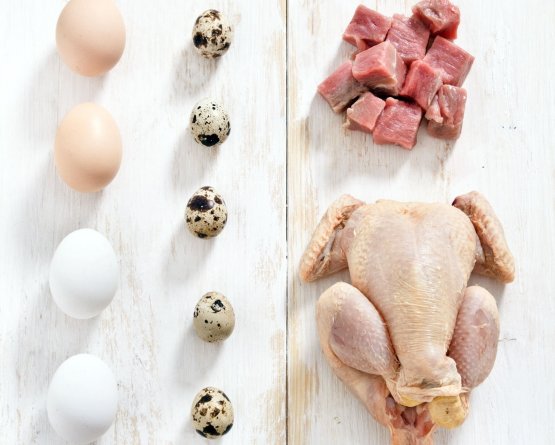What should I really need in order to be healthy and feel good? I asked this to a dietician and nutritionist a few months ago because we’re always bombed by information on “what we should eat” and not always these info are supported by scientific evidence.
The answer was a real discovery, especially the second part. The first part is that we should base our daily diet on vegetables and whole grains. The second is that it is essential to weigh products that are richer in proteins in order to avoid an excessive consumption of these.
This is indeed the revolution, because we keep on worrying that we’re not taking enough proteins while the problem is indeed the opposite. If we regularly eat fruit, vegetables and cereals we don’t risk having any deficiency in nutrients. Even legumes should be weighed and we shouldn’t eat more than 80 g per day. Why should we pay attention to the excessive proteins we are taking? Because proteins, contrary to carbohydrates and fats contain nitrogen, they are metabolised in a different way and an excessive intake makes the activity of liver and kidneys heavier and can lead to the development of severe diseases.

How many proteins should we really need? According to the FAO (
Report Energy and protein requirements), in order to feel good and not to make the activity of kidneys and other organs heavier, we need, on average, 0.626 g of protein-rich food (meat, fish, eggs, dairy products, legumes) per day per each kilo of our weight. This means that if we weigh 60kg we need 37g of protein-rich food, while if we weigh 80kg 50g per day are enough.
In fact we’re used to having over twice as much, since usually a portion of raw fish or meat weighs at least 100g. The protein intake grows even further if we follow one of the many diets that are super rich in proteins, which are very fashionable today and allow their creators to make a fortune at the expense of our health.
In order to control how many proteins we take in, we necessarily need to impose ourselves a small habit change and try, at least at the beginning, to weigh food. We’re so used to fill the dish with a slice of meat or fish, to see vegetables as a side dish that a small effort, at least at the beginning, will be necessary.
The same goes for the restaurant industry, which could reduce the portions of protein foods such as meat or fish or simply introduce half portions, as already customary in countries such as Spain or the UK. Offering a half portion allows the client to choose how much they want to eat, to save and has the benefit of reducing wastes on the plate.
The adoption by a large part of the population of a controlled protein intake could lead to significant benefits in terms of environmental sustainability and to a turning point towards a more sustainable use of natural resources, something which will be one of the focuses of the ever closer
EXPO Milano 2015.
The environmental benefits of a reduction in the consumption of proteins, especially animal ones, could be translated into a more sustainable use of natural resources with a lower consumption of fertile soil, drinkable water, a reduction of pollution and of carbon gas production.
I don’t believe the food of the future will be something unusual such as insects, even though I’m very curious about this theme and I would be happy if they were easier to source. I believe that the food of the future will be the one in which more people will be committed by making more sustainable and shared choices.